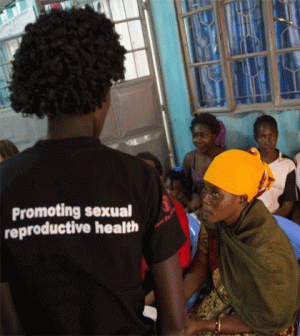- Finding Unshakable Power in a World That Wants to Pull Us ApartPosted 1 month ago
- What could a Donald Trump presidency mean for abortion rights?Posted 1 month ago
- Financial Empowerment: The Game-Changer for Women in Relationships and BeyondPosted 3 months ago
- Mental Health and Wellbeing Tips During and After PregnancyPosted 3 months ago
- Fall Renewal: Step outside your Comfort Zone & Experience Vibrant ChangePosted 3 months ago
- Women Entrepreneurs Need Support SystemsPosted 3 months ago
Unsafe abortions could skyrocket as coronavirus closes clinics worldwide

By Nellie Peyton | @nelliepeyton | Thomson Reuters Foundation
Experts say clinic closures in developing countries could lead to millions of unsafe abortions and thousands of maternal deaths
Coronavirus is changing the world in unprecedented ways. Subscribe here for a daily briefing on how this global crisis is affecting cities, technology, approaches to climate change, and the lives of vulnerable people.
WASHINGTON, April 16 (Thomson Reuters Foundation) – Clinic closures due to coronavirus in developing countries could lead to millions of unsafe abortions and thousands of maternal deaths if nothing is done, researchers said on Thursday.
Coronavirus: our latest stories
The pandemic is decreasing women’s access to sexual and reproductive health care worldwide as supply chains are disrupted, transport is restricted and services deemed “non-essential” are shut down, said the Guttmacher Institute, a reproductive health think tank, in a report.
Just a 10% decline in access to care in low- and middle-income countries would result in an additional 15 million unintended pregnancies, 28,000 maternal deaths and 3 million unsafe abortions, the study showed.
That is a conservative estimate for what might happen in reality, with some experts predicting a decline of up to 80%, said Elizabeth Sully, senior research scientist at Guttmacher.
“There’s a lot to suggest that we could see this and we could see something worse,” Sully told the Thomson Reuters Foundation.
“We need to take action now in a preventative way before we start to see these types of impacts.”
Countries should make sure sexual and reproductive health services are essential and staffed, make contraceptives available without a prescription and explore innovative models of care such as telemedicine, the report recommended.
The International Planned Parenthood Federation (IPPF) reported last week that more than 5,600 of its clinics and care providers – representing 14% of the total – had closed because of the outbreak across 64 countries.
Countries particularly affected by closures included Pakistan, El Salvador, Zambia, Sudan, Colombia, Malaysia, Uganda, Ghana, Germany, Zimbabwe and Sri Lanka, said IPPF.
Charity Marie Stopes International (MSI), which provides contraception and abortion services in 37 countries, has estimated 9.5 million women and girls would lose access to its services in 2020 due to the pandemic.
In Nepal, where it performs more than 75% of all safe abortions, MSI was forced to shut down services due to the lockdown on March 24, it said.
It has since been able to reopen 12 of its 36 clinics at limited capacity but said it is far from meeting need.
“We are trying every day to open more in coordination with the government,” a spokeswoman said.
MSI was also forced to temporarily shut its clinics in India, where it is the largest provider of family planning services outside the public sector.
India’s government ruled that abortion was an essential service on April 14, several weeks into lockdown, but women said they were not sure how they would get to health centers with no transport options and movement restrictions.
Related story:
Abortion in a lockdown: India says ‘yes’ but women wonder how
(Reporting by Nellie Peyton, editing by Ellen Wulfhorst; Please credit the Thomson Reuters Foundation, the charitable arm of Thomson Reuters, that covers the lives of people around the world who struggle to live freely or fairly. Visit http://news.trust.org)
Our Standards: The Thomson Reuters Trust Principles.






